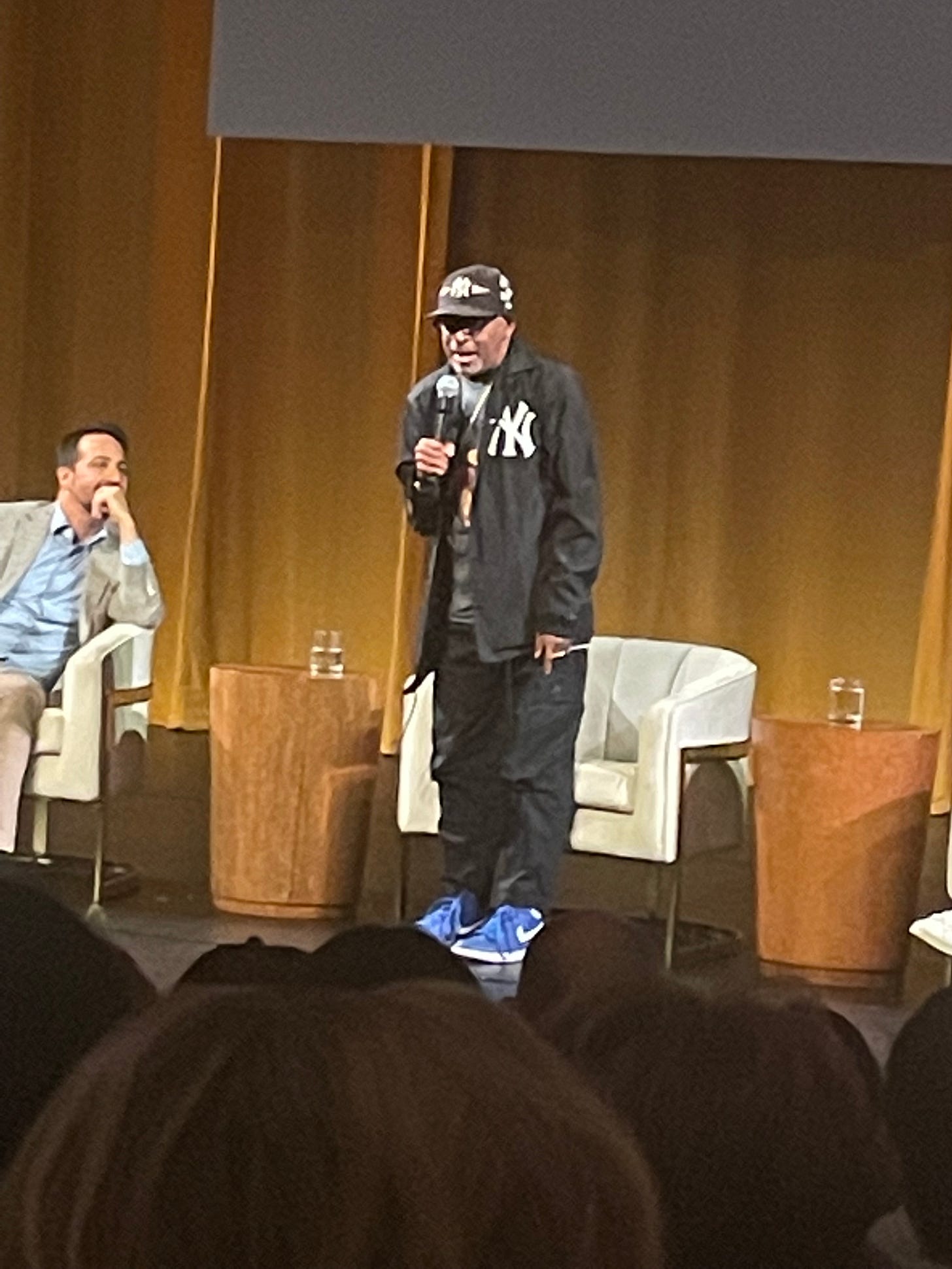The Middlebrow is delighted to share Success in Contemporary Corporate Praxis, a short play written in response to a prompt from the Theatre of Others, an international collective of theatrical artists based around the world, that produces an annual audio play festival, in podcast format. They devised the festival as a way to keep creating after life and pandemic spread their members around the world.
Along my journey with them, I met a talented dramaturge based in New York and a fantastic cast, director and sound designer all in Melbourne. The theatre’s co-artistic directors are in Cairo and Melbourne. It’s been a great experience.
The prompt was “50 years in the future” and the play is… right here. If you have 20 minutes, I hope you enjoy listening to it and would love to know what you think. The rest of today’s Middlebrow Musing will be waiting for you when you’re finished.
Welcome back. I hope you liked the show. When confronted with the prompt about the future, my mind went to the future of work. I’d been reading about China’s flirtation with social credit systems, which seem inevitable worldwide as artificial intelligence is infused into every aspect of our lives. I also thought about “360 degree” employee review processes, where a person is interviewed by their superiors, peers and subordinates while also being asked to review themselves and the company. The idea is to create a more equal, foolproof process of evaluation. In reality, it just reinforced hierarchies. Some opinions count more than others and the employee’s feedback on the workplace is also subject to judgment. The company is basically asking you for compliments. If you don’t like it, you can be replaced with somebody who does. Success in Contemporary Corporate Praxis pushes the idea that not only should you like your job, but that liking it might be an obligation.
It’s fun to write words for other artists to say and something I’ve very much missed over the years as opportunities to produce work have become more infrequent, in no small part to my own professional obligations.
Last weekend, The Scholar Wife took The Renaissance Son and me to the Brooklyn Academy of Music to see a panel discussion in between Carrie Mae Weems, Spike Lee, Lin Manuel Miranda and Phyllida Lloyd, all mentors in a program supporting film, theatrical and visual artists, sponsored at BAM by Rolex.
Spike is a national treasure. He is a straight talker and completely devoted to in-person collaboration, teaching and learning. He is a firm believer in work and he inspires with tales of his post-student days and how he sat in his Brooklyn apartment with his “student academy award” from NYU, waiting for the phone to ring. “The thing is, when you wait for the phone, the phone is turned off because Con-Ed doesn't pay.” Spike remembered his father, a jazz bassist, who refused to play electric instead of upright and how his mother had to go to work because his father would not adapt. So he knew it was time to work “overtime” on his own career. But the electric, gas and phone companies had to cut him off first.
Lin Manuel, meanwhile, recalled his first job out of school and how it almost took him on a different path. “I got a part time job teaching and what scared me was I really liked that. I love attention. And it there's nothing better when you see somebody make a connection. They offered me a full time position after my first year, and I could see that Mr. Holland's Opus version where I spend 30 years teaching kids and have a wonderful life and my musical is sitting in a drawer. And so I said, I'd love to be a new substitute teacher. My rent was $463. Subbing was a hundred bucks a day. If I could count on teachers to be sick for five days a month, I was in. A fourth grade Spanish teacher had a month of maternity leave and that was amazing. It made may year. If you keep your nut small, you can spend the rest of the time doing what it is you're meant to do.”
Though Lin Manuel didn’t have to keep life small for long and he was soon in New York, working with his heroes and learning that people who he thought were “tortured artists,” were actually quite nice and supportive. Weems spoke passionately about developing her career and wanting the whole time to meet Spike who responded that he’d been just down the block, perfectly willing to meet her the whole time (putting truth to Lin Manuel’s tale).
The Middlebrow’s artistic career is still, he hopes, in a state of becoming. It shouldn’t be too late to write plays and novels and maybe find an audience for them. It was wonderful to work with The Theatre of Others and to see mentorship and achievement in action at BAM.


